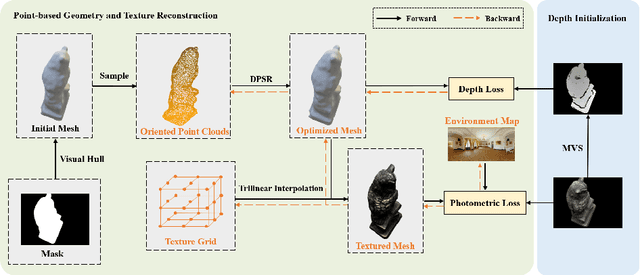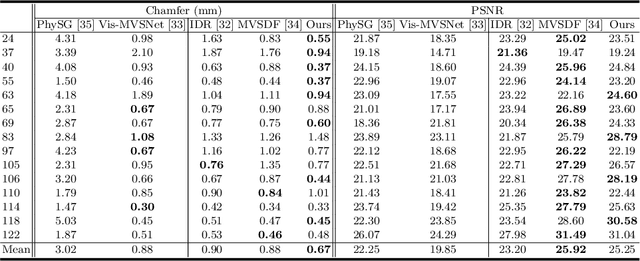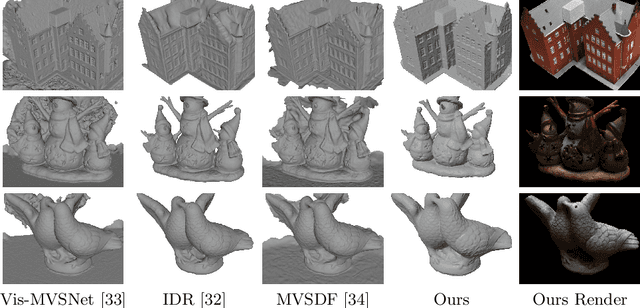Efficient Textured Mesh Recovery from Multiple Views with Differentiable Rendering
Paper and Code
May 25, 2022



Despite of the promising results on shape and color recovery using self-supervision, the multi-layer perceptrons-based methods usually costs hours to train the deep neural network due to the implicit surface representation. Moreover, it is quite computational intensive to render a single image, since a forward network inference is required for each pixel. To tackle these challenges, in this paper, we propose an efficient coarse-to-fine approach to recover the textured mesh from multi-view images. Specifically, we take advantage of a differentiable Poisson Solver to represent the shape, which is able to produce topology-agnostic and watertight surfaces. To account for the depth information, we optimize the shape geometry by minimizing the difference between the rendered mesh with the depth predicted by the learning-based multi-view stereo algorithm. In contrast to the implicit neural representation on shape and color, we introduce a physically based inverse rendering scheme to jointly estimate the lighting and reflectance of the objects, which is able to render the high resolution image at real-time. Additionally, we fine-tune the extracted mesh by inverse rendering to obtain the mesh with fine details and high fidelity image. We have conducted the extensive experiments on several multi-view stereo datasets, whose promising results demonstrate the efficacy of our proposed approach. We will make our full implementation publicly available.
 Add to Chrome
Add to Chrome Add to Firefox
Add to Firefox Add to Edge
Add to Edge